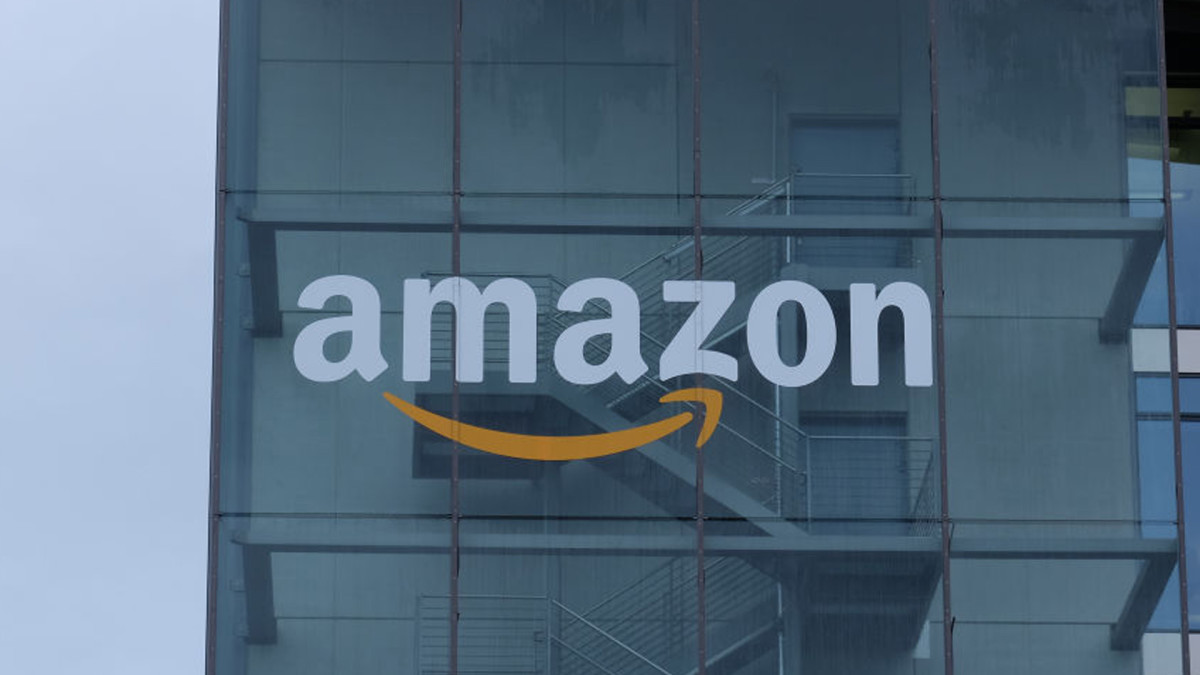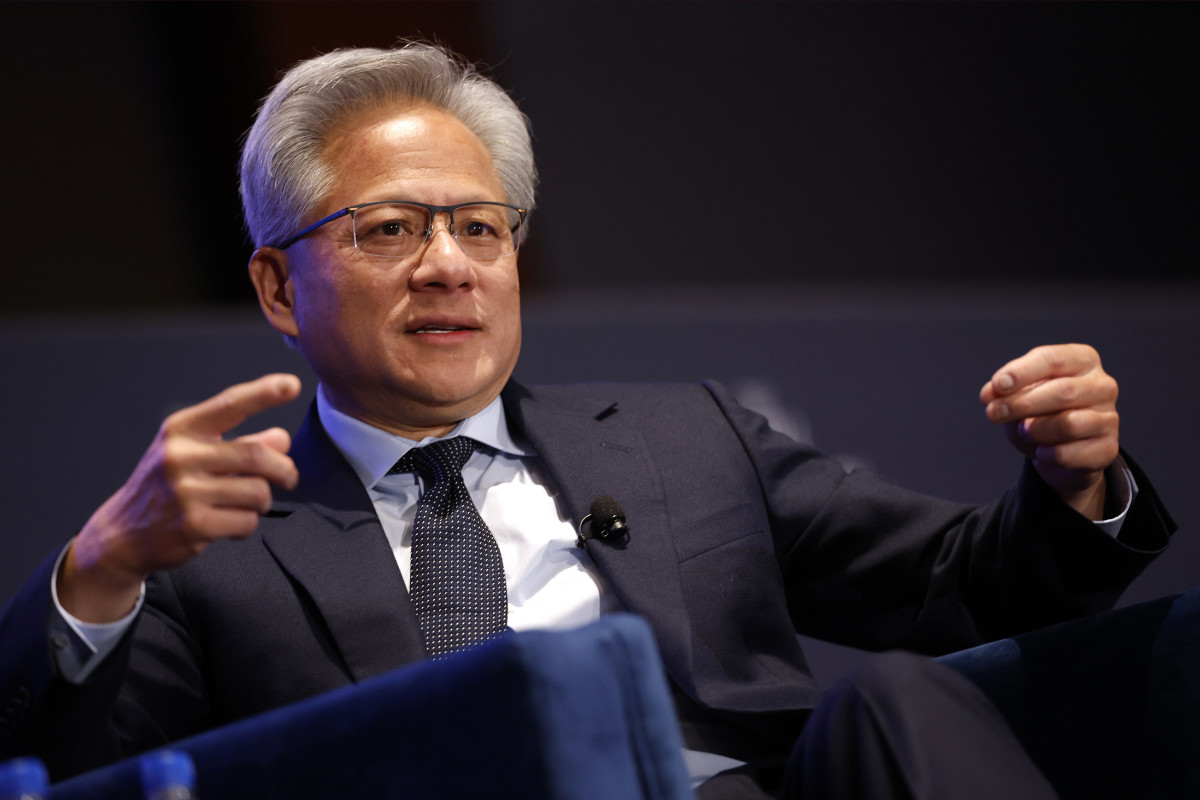What could make or break the market rally this week
With big tech earnings and a Fed decision, Jessica Inskip, Director Of Investor Research, Stockbrokers.com explains the biggest market catalyst this week.

Transcript: Caroline Woods: Joining me now, Jessica Inskip, Director of Investor Research at Stockbrokers.com and Host of the Market Makeher podcast. Jessica, great to have you here at the desk with me.
Jessica Inskip: I'm so happy to be here.
Caroline Woods: So we have a huge week on tap. We have the Trump-Xi meeting. We have a potential trade deal with China. We have the Fed rate decision tech earnings mag five five of the mag 7 on deck. What's the most important thing you're watching this week. What's going to move the market most?
Jessica Inskip: Well I think it's a combination of things. And we certainly can't concentrate on one thing, but the market is at all time highs. But we have this euphoric state that really is three major things. One, we are counting on the Fed easing. It seems like we're still going to be in that cutting cycle. So that's going to be extremely important to maintain that. And also listening to the Q&A is very important. But earnings earnings is what moves the market more than anything. So I will argue actually we can put importance on earnings because if the Fed for some reason becomes more restrictive, that's an impact on earnings. And that's what we're trying to understand. And then of course, an easing or a growing economic environment that's very important. Those three things create this Goldilocks scenario. But anytime we're in a Goldilocks scenario, I get a little concerned because we have to consider where we are. We are near all time highs, so anything that can derail one of those three pillars will cause volatility within the market.
Caroline Woods: And I want to break down all of those things. But before I do, I do just want to get your general sense of the market. Do you trust this rally? Is this a market that seems sustainable?
Jessica Inskip: I do trust the rally for a couple of reasons. I think the market is disconnected from the economy. So and the economy is also becoming more artificial intelligence. It's very funny. Any type of report that I try to write, it always comes back to artificial intelligence, no matter how hard I challenge myself not to do that. But it is a k-shaped recovery. We have these different cohorts in the low income consumer. Unfortunately, they're being constrained. And you can see that with consumer staples, even. But I do think it's a sustained rally because we're looking at the markets, the S&P 500 that is largely AI oriented. And those are B2B businesses, not direct to consumer. And anything that is direct to consumer is that higher end consumer. And that's doing well.
Caroline Woods: So to your point, it's been all about AI. Even though we have seen other areas of the market participate. Do you expect AI to continue to drive this market higher, or do you expect that to eventually Peter out and other areas to make up for it?
Jessica Inskip: I do expect AI to drive it higher, and I believe it's going to show up in places that we actually can't see it. So it's very difficult to measure the impact of AI outside of direct revenue streams from that of the Magnificent Seven or those that are directly exposed to artificial intelligence. And I've been trying to find a way, and one is revenue per employee. So we can look at metrics that tell us, our company is doing more with less. And then, of course, anecdotal conversations. So actually, last week I met with all of the retail brokerage firms, and one of the conversations and topics of discussions was, how are you utilizing artificial intelligence. And the productivity increases that I could see from those conversations are not surfaced in the data. And that, to me is very interesting as in writing more research reports, the volume of research reports is all because of AI or compliance agents, all because of AI, things that humans would normally do is, is being replaced by, by AI in some sort. But there is human oversight. So that leads me to this. No hiring, no firing. It actually makes sense if we think about it in the context of these were 14 companies I talked to, but very, very big companies in how they're utilizing AI. And I'm considering how I'm personally using it and probably how you are too. You can do so much more with less, but we can't actually measure that.
Caroline Woods: So in terms of something that could derail the market, obviously a recession could be one of those things, but it doesn't sound like you're expecting it to get that bad?
Jessica Inskip: I don't, and if we look at recessions, they're always called in hindsight. And the ones metric we can rely on is mass layoffs. And we're not seeing that right now. There's this no hiring, no firing, which also has to do with administration and immigration policy as well. So this peculiar, peculiar labor and supply demand, as Powell stated. So I don't see that for that reason because we don't see mass layoffs. People still have income. If people have income, they'll spend money and then that buoys the economy.
Caroline Woods: But what is it that drives this market higher from here. Because to your point, Yeah, consistently hitting new highs. It is what's going to power it higher. Is it just going to continue to be I or is it going to be the Fed continuing to cut rates. Is it going to be a trade deal with China. The market was at New highs, despite the fact that there was a whole bunch of uncertainty and noise there. Is this going to be a buy the rumor kind of sell the news type of thing, or is it going to be a catalyst?
Jessica Inskip: It has to be a combination of all those things, and all of those could be a catalyst. But we need an easing Fed to spur more. I that's important. We definitely don't want volatility that has to do with tariffs. However, the market seems to be shaking that off. More to your point. So I do think it is AI oriented. But I do think fiscal policy. Now is in this place where we can do more. I'm trying to word that in the right way, as in, it is an environment conducive for regulatory changes. And we see this with the clarity act. So artificial intelligence is even expanding. I want to rename the rally actually from the AI rally to the efficiency boom because of the tokenization and stablecoins and the access that's coming to our public markets. And I think that actually will be the next leg. But it's an expansion of AI, not solely AI. Efficiency worked well for Meta, so that could work well for this market as well.
Caroline Woods: In terms of tech earnings, we have five of the big 7 on deck this week. What are you expecting to hear. Could that potentially derail this rally?
Jessica Inskip: If it's not all beaten raise it certainly could. It has the potential. It's all about how the market digests those type of earnings. What I think is important one we have very good earnings thus far. We are beating consistently. I think we're at 87% Last time I checked the mag five that are coming this week, I think it's different now that they're all around the same day, and a lot on a Fed bad day. Now the market's going to do a lot of comparing. That's going to be different from previous earnings cycles and that could change things. But ultimately it's is the demand still there for AI. Is there revenue that's being captured from those that we can actually see it. So to me the end game for AI is, of course targeted ads in a specific way. Google, for example, convinces us that Gmail and everything is free when in all reality, we get really good targeted ads, and artificial intelligence is a means to be more targeted. And I'm personally OK with that. Give me what I want, not what I don't, what I need, nonetheless. So I do think that compare and contrast is going to be different, but what's important is seeing the demand that's there for artificial intelligence to still be consistent. That's important.
Caroline Woods: So tell me what you want to buy. What do you want to add to your portfolio right now. Would it be any of those big seven names or are you looking beyond?
Jessica Inskip: I actually have two stocks that are at the top of my list this year. So and they go into that theme of artificial intelligence and tokenization and there's nurse crossover. First and foremost is Oracle I like Oracle. There's exposure to TikTok. And we know that's actually in discussions this week as well. Hopefully we'll have a deal. And Oracle though I'm waiting for their type of AI product. So the endgame for AI aside from the ad revenue, but as an AI provider, is an AI for everything. There are very sophisticated users who will create their own interfaces and bridge with different companies and utilize their APIs and pull everything together. That's a different way that we consume information. You might go to a company to go shopping or elsewhere. Now you can create your own interface to do what you want it to do. I've done that with some of my connections to a lot of market data in my own interface. I believe Oracle is going to do something like that, and I want to be in that stock when that happens. And of course, the exposure that they have with everything else, IBM is definitely one of my favorites. We haven't talked about what's next in a while, but Watsonx has transformed. There was a new we had a new CEO back in 2020. He's made changes. We're seeing the fruition of those changes. Much like meta has repositioned and refocused. IBM has done the same thing. But what I think is interesting about IBM, if we were to pull the ownership of exchange traded funds, it's largely income produced, not growth. So there's room for rerating and repositioning, which is going to create some demand. So I think there's further upside for IBM there. And Additionally, they are exposed to that tokenization, which I do believe is it is happening. Robinhood CEO told us it's coming in like a freight train. And there's headlines that I see every day of these tokenized assets, which is giving us global access. So I want to be exposed to those themes. And I believe Oracle and IBM do the best job outside of the back seven that we talk about all the time.
Caroline Woods: All right. We will leave it there. Appreciate those picls. Appreciate your insights. Jessica, Thanks so much.
Jessica Inskip: Thank you.
Caroline Woods: That's Jessica Inskip, Director of Investor Research at Stockbrokers.com and Host of the Market Makeher podcast.
What's Your Reaction?




















































